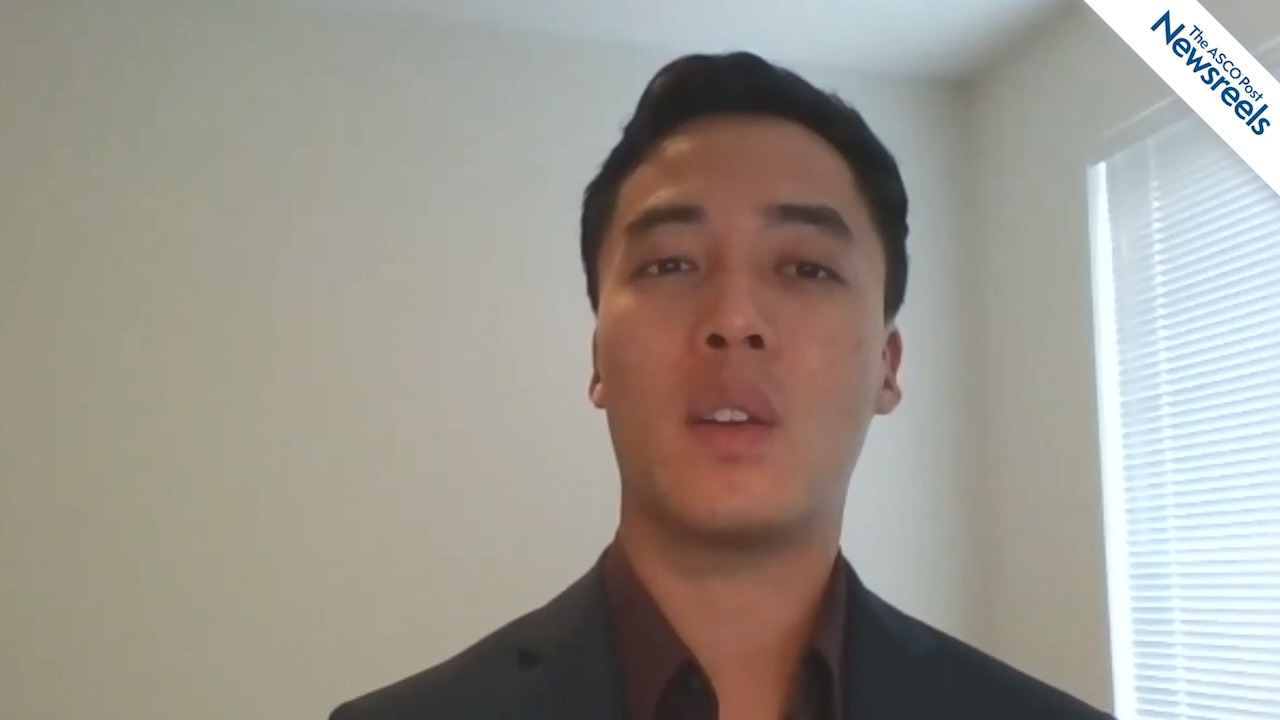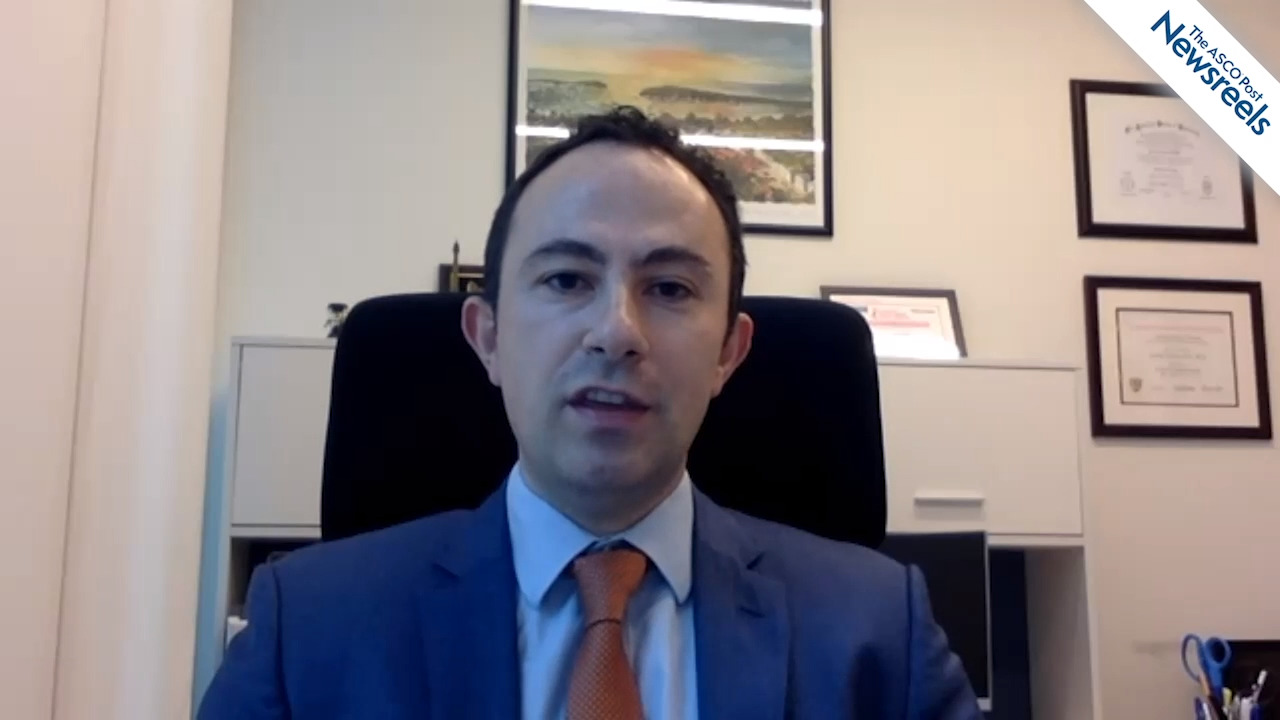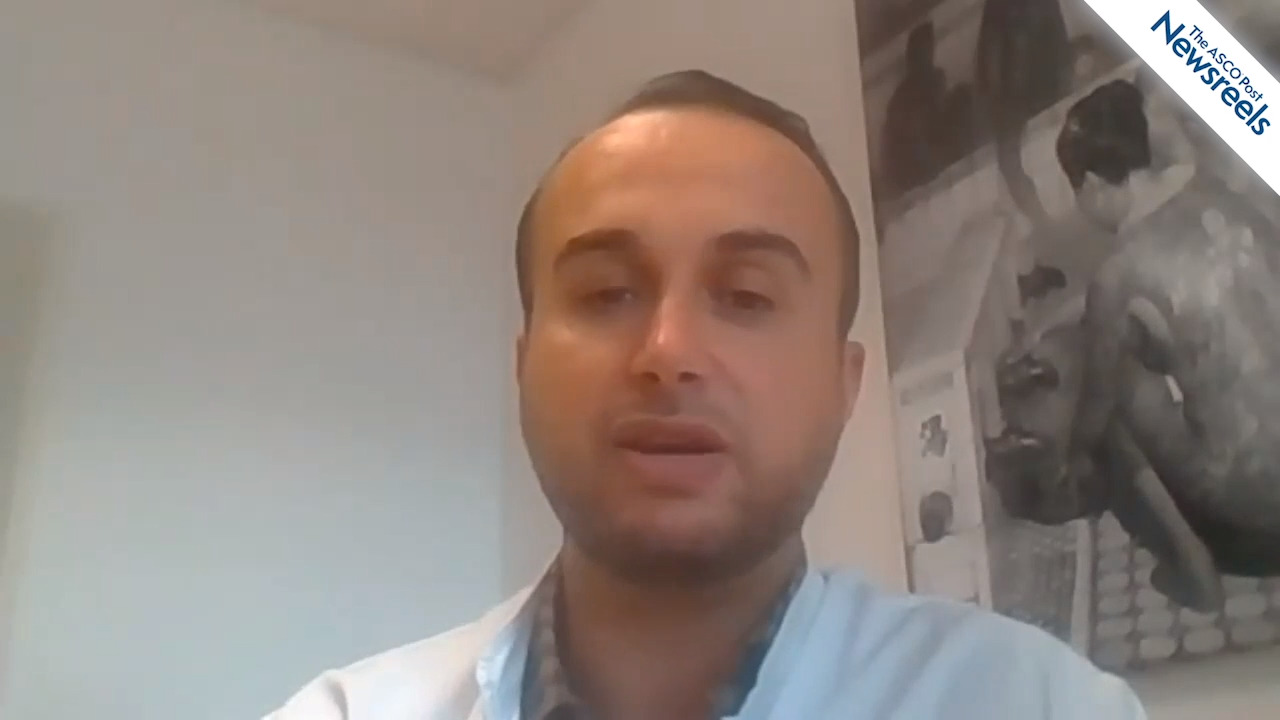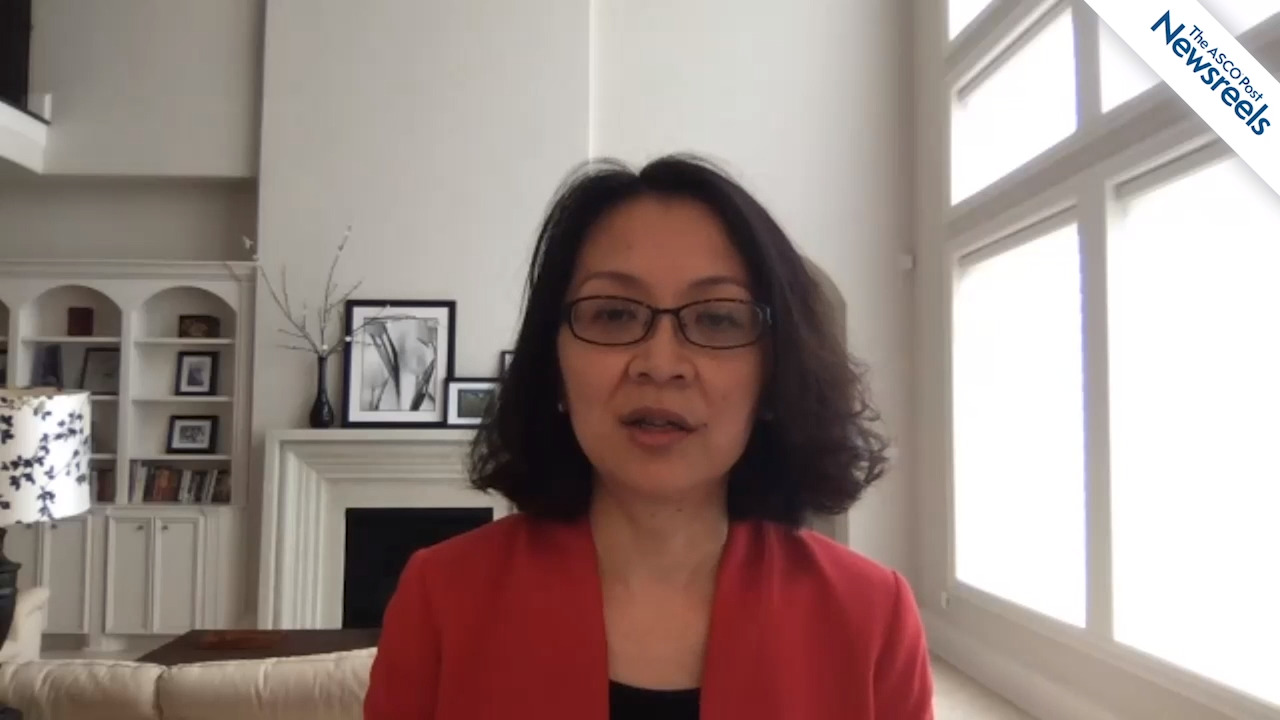Daniel E. Spratt, MD, on Prostate Cancer: Short-Term Adjuvant vs Neoadjuvant Hormone Therapy
2020 ASTRO Annual Meeting
Daniel E. Spratt, MD, of the University of Michigan Rogel Cancer Center, discusses a pooled analysis of two phase III trials showing adjuvant androgen-deprivation therapy (ADT) improves biochemical control and reduces distant metastasis when compared with a neoadjuvant approach, with no difference in late gastrointestinal or genitourinary toxicities. The analysis also showed that delaying radiotherapy to deliver neoadjuvant ADT did not benefit most patients (Abstract 32).
The ASCO Post Staff
Justin Oh, MD, of the University of British Columbia, discusses results from the ASCENDE-RT trial, which compared a low-dose–rate brachytherapy boost to a dose-escalated external-beam boost for patients with high- and intermediate-risk prostate cancers (Abstract 127).
The ASCO Post Staff
Youssef Zeidan, MD, PhD, of the American University of Beirut Medical Center, discusses study findings showing that breast-conserving surgery, whole-breast irradiation, and trastuzumab offer effective local tumor control for patients with HER2-positive breast cancer. An additional radiation boost does not seem to further improve outcomes (Abstract 52).
The ASCO Post Staff
Neha Vapiwala, MD, of the University of Pennsylvania, who served as a discussant for LBA1, summarizes her review of this study of patients with prostate cancer who had biochemical recurrence in the post-prostatectomy setting, who were candidates for salvage radiotherapy, and who received either conventional imaging or PET scans to help determine the course of treatment.
The ASCO Post Staff
Paul Sargos, MD, of the Institut Bergonié, discusses phase III findings from the GETUG-AFU 17 study, which compared adjuvant vs early salvage radiotherapy, both combined with short-term androgen-deprivation therapy after radical prostatectomy for localized prostate cancer. Although lacking statistical power, the study showed no benefit in event-free survival for adjuvant compared to salvage radiotherapy (Abstract 33).
The ASCO Post Staff
Jing Li, MD, PhD, of The University of Texas MD Anderson Cancer Center, discusses phase III results showing the use of stereotactic radiosurgery in patients with 4 to 15 brain metastases, compared with whole-brain radiotherapy, may better preserve cognitive function and minimize the interruption of systemic therapy without compromising overall survival (Abstract 41).





